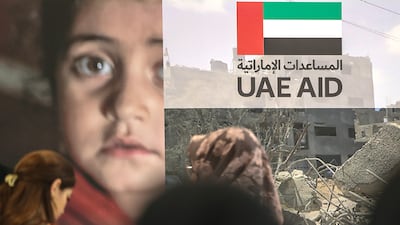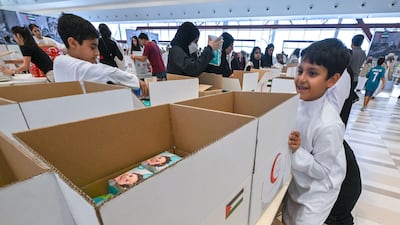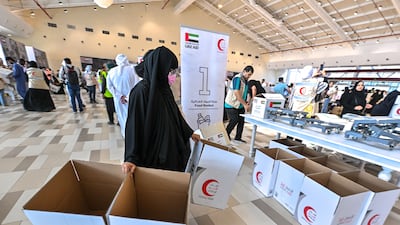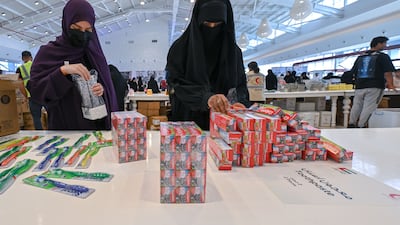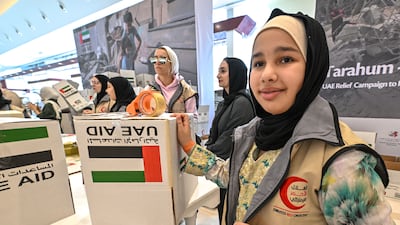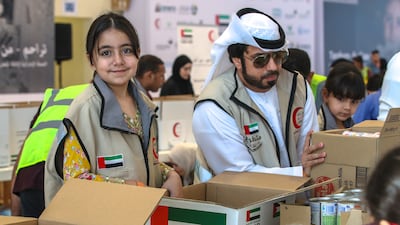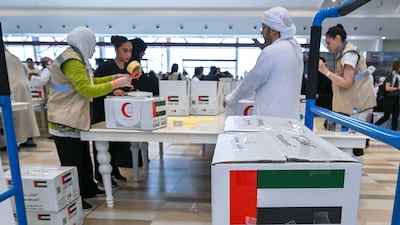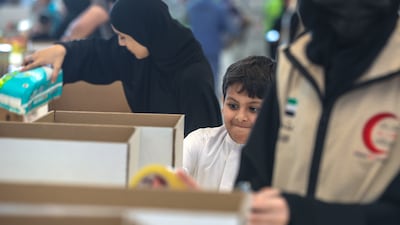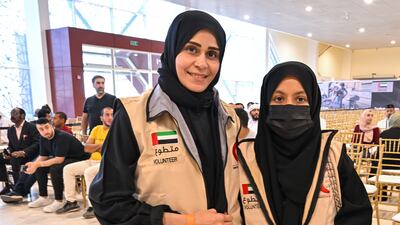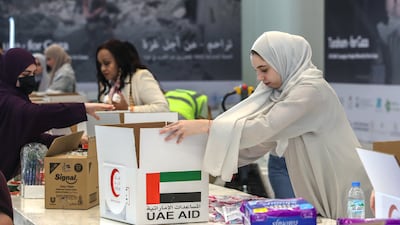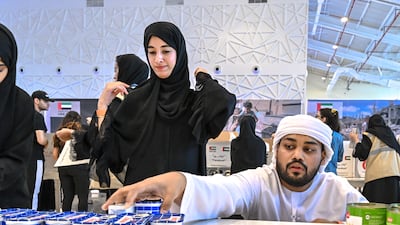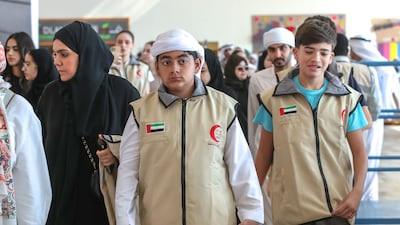As the Israel-Gaza war and its devastating impacts intensify, threaten regional spill-over, and widen global discord, world leaders including the US President rush to the region. As news broke on Tuesday night of a hospital in Gaza being hit with a missile, killing hundreds of civilians, UN Secretary General Antonio Guterres said he was “horrified”, noting that “hospitals and medical personnel are protected under international humanitarian law”.
Mr Guterres is right, of course, but his remarks will have many questioning what the organs responsible for promulgating international humanitarian law – chiefly the UN – can do to contain the spiral of violence, if anything. After all, the UN has itself become a target, intentionally or not, with nearly a dozen UN staff killed in an Israeli air strike last week, along with 30 pupils at UN-run schools.
So where is the UN and what is its role?
The UN has been central to the Palestine-Israel story since its own formation in 1945. Britain, exhausted by the Second World War, wanted to be rid of its Palestinian mandate and referred the issue to the UN in April 1947. Its Special Commission recommended partition into Jewish and Arab states, and the UN General Assembly duly obliged in November 1947 through Resolution 181. But it was not a universally popular verdict, with 33 member states favouring and 23 against or abstaining.

By today’s glacial pace of UN movement, creating and dividing a new state and its peoples in less than a year was indecent haste. That fateful decision spawned decades of strife that bedevils the UN’s Middle East role to the present day.
After the 1948 war, the UN created its first-ever mediation function. But within months the pioneering UN mediator Folke Bernadotte was assassinated by Zionists. Despite this unpropitious beginning, the persistent UN appointed Ralphe Bunche, who won the Nobel Peace Prize for securing the 1949 armistice between Israel and Egypt, Lebanon and Syria.
A long line of UN envoys followed, the latest being the UN Special Coordinator for the Middle East Peace Process. He is backed by many General Assembly and Security Council resolutions reiterating the recognition of Palestinian rights and a two-state solution. However, the UN has lacked implementation capacity. Progress such as the 1970s Camp David Accords and 1990s Oslo Accords was due to influential member states.
But those got undone in previous cycles of Palestinian violence and Israeli repression. Unable to break through them, UN peacemaking became moribund. That is not helped today by a Security Council paralysed by geopolitics and member states polarised between pro-Israel and pro-Palestine camps. The latest Security Council resolution with the modest objective to pause fighting and give Gaza civilians a breather foundered for this reason.
Consequently, the Secretary General cannot exercise his peacemaking functions and is reduced to making general pleas to follow international humanitarian law during hostilities. That is easier said than done when Gaza is so densely populated.
Current peacemaking is not coming from the UN, but from states that carry clout with the warring parties, such as Egypt, Qatar, Saudi Arabia and the US. But their differences mean the necessary compromises will take time.
But the UN could be indispensable when the war ends by legitimising any agreements, rather like the officiant at a wedding, and supervising the parties to keep their promises. It is well-practised in doing that in many places as far apart as Congo and Cambodia.
It was also in the Middle East that the UN created its first-ever peacekeeping mission in 1949 with the UN Truce Supervision Organisation.
That is still there 75 years later, along with sister missions, the UN Disengagement Observer Force created in 1974 for the Golan between Israel and Syria, and the UN Interim Force in Lebanon created in 1978 with a monitoring role on the Lebanon/Israel border.
The three missions have a biennial budget of $612 million and deploy 12,000 personnel.
With no enforcement power, they observe and go between the belligerents during numerous flare-ups. Perhaps they have put out small fires here and there. But they have not deterred any major wars while suffering abuse and aggression from all sides: 438 peacekeepers have been killed over the years.

Their current impotence is shown in Israel-Hezbollah clashes across the Lebanon border and Israeli bombing of Syrian airports. But closing down the missions is not on the cards because it would send perverse signals to the belligerents while removing crucial international eyes and ears on the ground.
UN peacekeepers are less popular globally, as their troubled withdrawals from the Sahel indicate. Nevertheless, could they play a useful postwar role? Possibly, because some neutral security monitoring mechanism will be useful in Gaza. But this depends on trust from all sides. That cannot be assumed.
It is axiomatic to eventual peacebuilding that justice is dispensed for wrongs done during fighting, and human rights grievances tackled.
The Office of the UN High Commissioner for Human Rights has field presences in Israel and Palestine, including Gaza. The Human Rights Council has received numerous reports on the grave situation and passed many resolutions of condemnation and demands for redress. But with some of its own members abusing human rights and the council having no executive authority, its pronouncements have little practical value.
The International Court of Justice is the UN’s principal judicial organ, to which the General Assembly referred the question of legality of Israeli occupation of Palestinian lands in a highly divided vote in 2022. The Court is in no hurry to rule and, anyway, its judgements are only advisories, including its earlier ruling on the illegality of the walls built by Israel to contain Palestinians.
The International Criminal Court is another mechanism invoked by Palestine, which is a signatory to the Rome Statutes while Israel is not. In 2019, the ICC Prosecutor ruled that there was reasonable basis to believe that war crimes were committed by Israeli forces and Hamas in Gaza and the West Bank, justifying further investigations. ICC tardiness to do that has been contrasted with its speed in the much later case of Russian aggression on Ukraine.
In short, the UN’s human rights and judicial mechanisms are unlikely to be able to make a meaningful difference to the evolution of the current crisis. The perverse consequence of delayed accountability is to normalise no-holds-barred war-making, as just seen with the atrocious bombing of a Gaza hospital.
That human suffering is at the centre of Palestine’s long and tragic history is incontestable. Mitigating that is where the UN comes into its own. The Relief and Works Agency for Palestinian Refugees (UNRWA) caters for 5.9 million people in the region including two thirds of Gazans. UNRWA is the de facto provider of services that elsewhere a government would organise, such as education, health care and social protection.
UNRWA has done this since 1949, developing Palestinian skills and capacities, and bringing a modicum of hope. Its Gaza operations with its 13,000 – mostly local – staff have pivoted overnight towards emergency relief. Its 288 schools have been sheltering the displaced from air strikes.
UNRWA is joined by 22 other UN agencies in Palestine, and key are the World Food Programme, World Health Organisation, and Unicef providing life-saving food and healthcare.
Several aid workers have been killed and the courage of those who have survived will be tested further in coming days as they accompany the fleeing population with or without humanitarian corridors and safe zones.
Much of Gaza is likely to be flattened but will need rebuilding if people are to return – or else the evacuations are tantamount to ethnic cleansing. That must not happen, and it is UN agencies that will be central to rebuilding.
The UN’s indispensable humanitarian and recovery role is not contested. What about its underplayed political function? This is not perfect, by any means. But when toxic rivalries among global and regional powers feed the Palestine-Israel dispute, the peace support function of the UN may be the missing piece of the fiendishly complex jigsaw that is the Middle East crisis.


